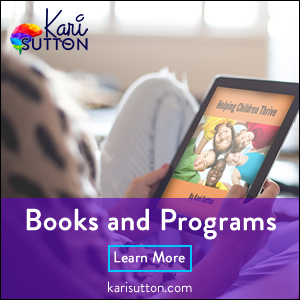Do you remember your first childhood friend? The one you woke up excited to see as you arrived at school inside the school gates? Delightful times playing, filled with laughter, fun and adventure. For children, forming friendships is a crucial part of growing up and a fundamental part of their social and emotional development. Even as adults, our friends remain an immensely important part of our lives, helping us cope with problems, laughing with us, sharing the good times and our proudest moments as well as being there when we simply need someone to listen and be a shoulder to lean on. Humans are innately social beings. As far back as history can trace, we have journeyed, hunted, gathered and thrived in social groups. Individuals who were alienated from their tribes frequently experienced harsh consequences.
Friendships and social connections furnish us with an influential element of our identity and teach us skills that help us lead fulfilling lives. As a guidance counsellor, some of the most frequent calls I had from parents were about how they could help their children manage friendship issues. One mum called me in tears one day, asking how she could help her seven-year-old son who was being excluded by his group of friends because of his new glasses. Another mum wanted to know how she could help her six-year-old daughter, who didn’t seem to have any close friends in her class and wasn’t invited to play at friends’ houses. A dad called to ask how he could help his daughter, who had changed schools, as the kids at her new school were being incredibly mean to her when she was trying to join in. I worked alongside these families to support their kids and help them develop strategies and skills to cope with the friendship challenges they were facing. Together we built the kids’ friendship skills so they could be more comfortable, confident and happy in social situations.
Research from Dr Robert Waldinger at Harvard University has clearly demonstrated that good friends and a high level of social support is a protective factor against anxiety and depression, lowers our risk of heart disease, increases our immunity to infection and is closely related to increased levels of resilience.
It’s easy to assume that our children will learn to ‘play nicely’ with others and easily develop friendships they will keep for a lifetime. However, this is not as simple as it sounds, and things rarely go as smoothly as we would hope. Learning how to be a friend and make new friends are complex skills that require time and supportive coaching.
One of the most important gifts we can give our children is the ability to connect with others and sustain those friendships. Friendship and social skills in early childhood are more predictive of outcomes in adulthood than academic skills with a significant correlation between children’s social skills in kindergarten and their wellbeing at age 25. Children who displayed social competence were more likely to finish high school, go to college, find a job, and stay out of the justice system than those who exhibited lower levels of social competence.
Just like any relationship friendships take work, and we must provide our children with the tools, strategies and skills they need to be a good friend and make and keep good friends in life. The following three strategies are a good place to start.
-
Teach social skills
As parents we need to help our kids understand the importance of greeting people in a
pleasant way, talking to others politely, taking turns, sharing, listening to others and taking
someone else’s feelings into account. These skills can be supported and developed by
arranging plenty of opportunities for your child to meet a variety of different people. Social
skills can also be practised by role-playing with your children, so they can try their skills out
in a familiar environment with a safe and supportive person until they become more
proficient.
-
Model how friendships work
Our children watch everything we do, which is a wonderful way for them to learn about
friendships. Let them observe how you behave with your friends, how you surround yourself
with people who support, encourage and treat you well. Let them see you investing time
and energy into your friendships and explain that no one is born knowing how to make
friends. Let them know that we all need to learn how to do it and that everyone can become
better at it, just like we can learn how to read and become better at that too.
-
Friends do the five
We need to explicitly describe the qualities that make a good friend so that our children will
understand how to be a good friend, as well as how to tell if another person is being a good
friend to them. Explain that being a good friend means being kind, a good listener, honest,
unselfish and trustworthy. An easy way to help your child remember the characteristics of
what makes a good friend is to draw an outline around their hand. In the palm write Friends
do the Five, then write these five things – one on each finger; Be kind, Be a good listener,
Tell the truth, Take turns and share, Keep promises. When you’ve practiced this activity they
have a tool they can use anywhere to evaluate if someone is being a good friend.
Encourage your child to also think about their friend’s feelings and consider how their
actions may impact on their friend. Describe how good friends show an interest in the other
person and want to know what they are interested in, and that they do this by asking
questions and listening. Let them know that another trait of being a good friend is that they
are both a good winner and loser – that things do not have to go their way all the time. You
can also discuss what bad friends might do such as: being selfish, not listening, not sharing,
making fun of other people, ignoring them, snatching or taking things that they want, being
dishonest or being unkind. This encourages them not to tolerate those behaviours from
others as well as reflect on their own behaviour and not to do those things with their
friends.
As parents, we are uniquely positioned to help our children develop friendship skills early in life that will support their emotional and social well being as an adult.









